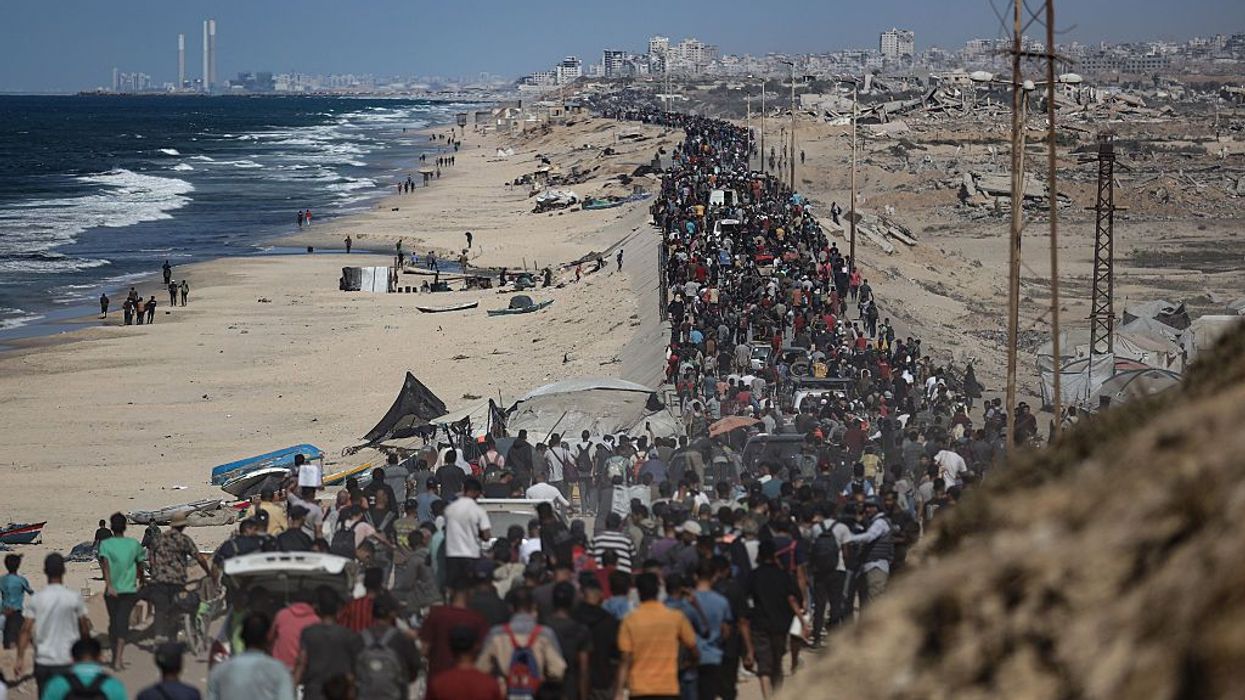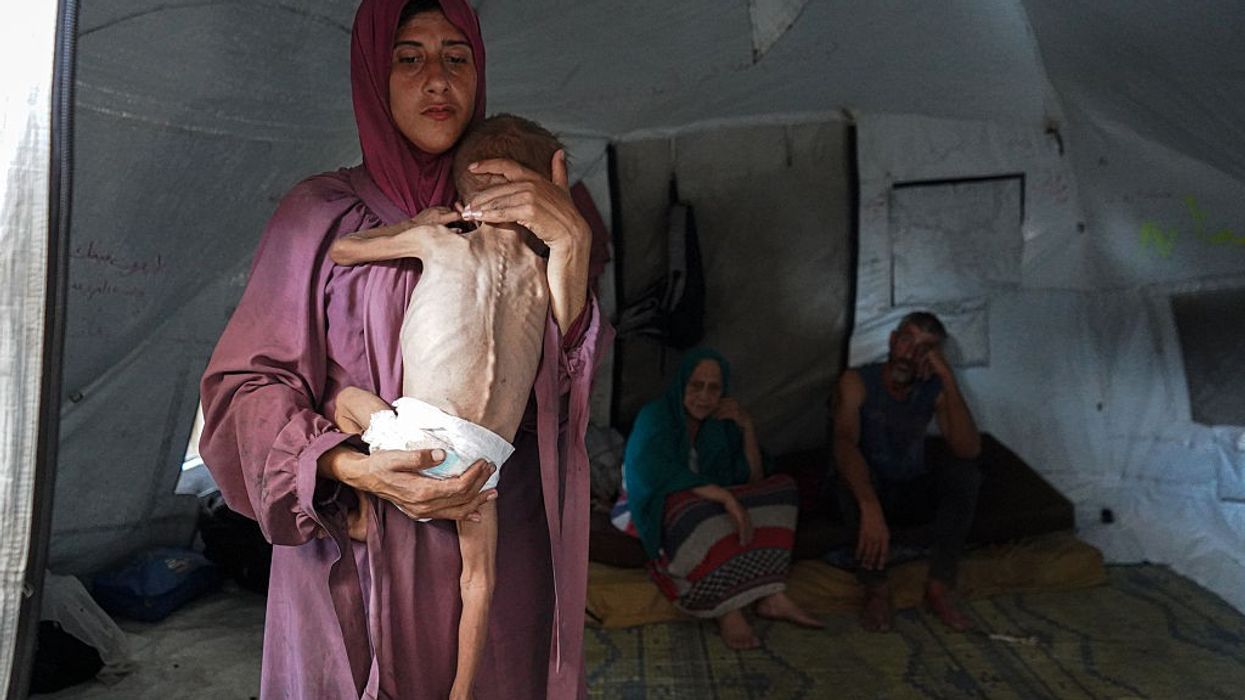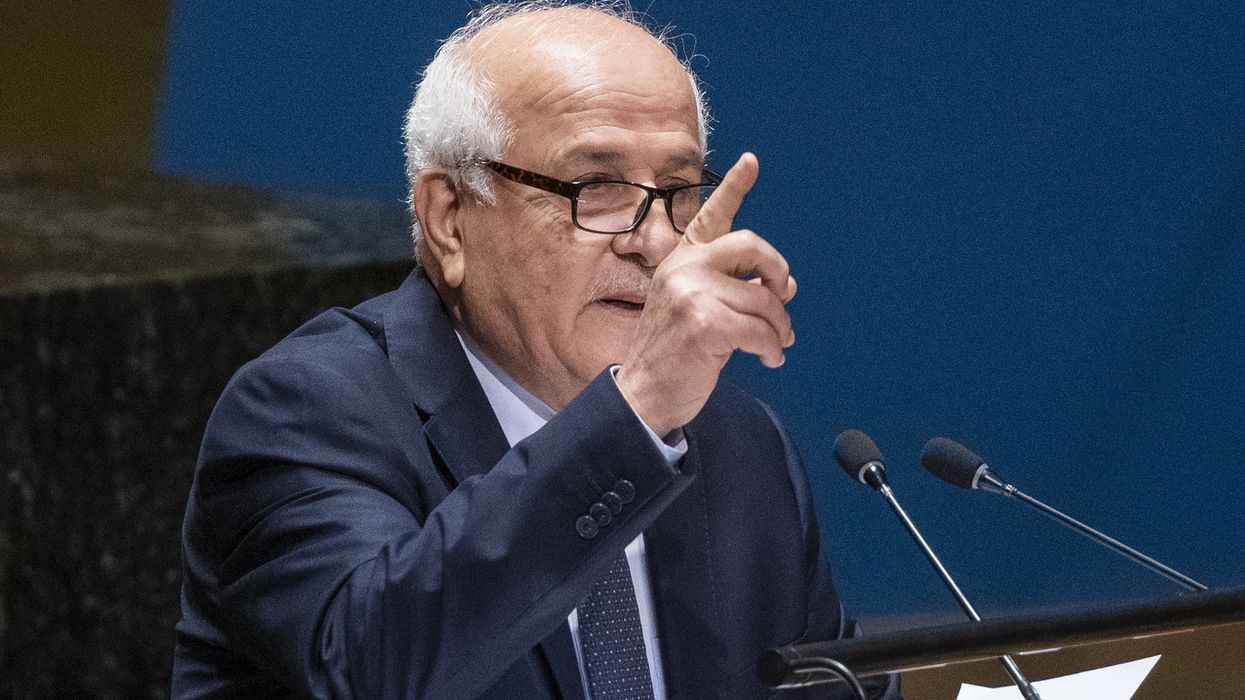From Gaza, Palestinians Have Reasserted Their Agency on the World Stage
If we are to speak of a Palestinian victory in Gaza, it is a resounding triumph for the Palestinian people, their indomitable spirit, and their deeply rooted resistance that transcends faction, ideology, and politics.
If we are to speak of a Palestinian victory in Gaza, it is a resounding triumph for the Palestinian people, their indomitable spirit, and their deeply rooted resistance that transcends faction, ideology, and politics.
For decades, the prevailing notion was that the "solution" to the Israeli occupation of Palestine lay in a strictly negotiated process. “Only dialogue can achieve peace” has been the relentlessly peddled mantra in political circles, academic platforms, media forums, and the like.
A colossal industry burgeoned around that idea, expanding dramatically in the lead-up to, and for years after, the signing of the Oslo Accords between Yasser Arafat's Palestine Liberation Organization (PLO) and the Israeli government.
The Unmaking of 'Peace'
The problem was never with the fundamental principle of "dialogue," "peace," nor even with that of "painful compromises"— a notion tirelessly circulated during the "peace process" period between 1993 and the early 2000s.
Instead, the conflict has largely been shaped by how these terms, and an entire scaffolding of similar terminology, were defined and implemented. "Peace" for Israel and the US necessitated a subservient Palestinian leadership, ready to negotiate and operate within confined parameters, and entirely outside the binding parameters of international law.
Similarly, "dialogue" was only permissible if the Palestinian leadership consented to renounce "terrorism"—read: armed resistance—disarm, recognize Israel's purported right to exist as a Jewish state, and adhere to the prescribed language dictated by Israel and the US.
The genuine fear that unified Israel, the US, and several Arab countries is the terrifying prospect that Resistance, particularly armed resistance, could reemerge in Palestine, and by extension across the Middle East, as a viable force capable of threatening all autocratic and undemocratic regimes.
In fact, only after officially renouncing "terrorism" and accepting a restricted interpretation of specific United Nations resolutions on the Israeli occupation of the West Bank and Gaza did Washington agree to "dialogue" with Arafat. Such low-level conversations took place in Tunisia and involved a junior US official—Robert Pelletreau, assistant secretary of state for Near Eastern affairs.
Not once did Israel consent to "dialogue" with Palestinians without a stringent set of preconditions, driving Arafat to a unilateral series of concessions at the expense of his people. Ultimately, Oslo yielded nothing of intrinsic value for Palestinians, apart from Israel's mere recognition, not of Palestine or the Palestinian people, but of the Palestinian Authority (PA), which, over time, became a conduit for corruption. The PA's continued existence is inextricably linked to that of the Israeli occupation itself.
Israel, conversely, operated unchecked, conducting raids on Palestinian towns, executing massacres at will, enforcing a debilitating siege on Gaza, assassinating activists, and imprisoning Palestinians en masse, including women and children. In fact, the post-"dialogue," "peace," and "painful compromises" era witnessed the largest expansion and effective annexation of Palestinian land since the 1967 Israeli occupation of East Jerusalem, the West Bank, and Gaza.
Gaza as the Anomaly
During this period, there was a widespread consensus that violence, meaning only Palestinian armed resistance in response to unconstrained Israeli violence, was intolerable. The PA's Mahmoud Abbas dismissed it in 2008 as "useless," and subsequently, in coordination with the Israeli military, devoted much of the PA's security apparatus to suppress any form of resistance to Israel, armed or otherwise.
Though Jenin, Tulkarm, Nablus, and other regions and refugee camps in the West Bank continued to forge spaces, however constrained, for armed resistance, the concerted efforts of Israel and the PA often crushed or at least substantially reduced these moments.
Gaza, however, consistently stood as the anomaly. The strip’s armed uprisings have persisted since the early 1950s, with the emergence of the fedayeen movement, followed by a succession of socialist and Islamic resistance groups. The place has always remained unmanageable—by Israel, and later by the PA. When Abbas loyalists were defeated following brief but tragic violent clashes between Fatah and Hamas in Gaza in 2007, the small territory became an undisputed center of armed resistance.
This event occurred two years after the Israeli army's redeployment out of Palestinian population centers in the strip (2005), into the so-called military buffer zones, established on areas that were historically part of Gaza's territory. It was the start of today's hermetic siege on Gaza.
In 2006, Hamas secured a majority of seats in the Palestinian Legislative Council, an unexpected turn of events that infuriated Washington, Tel Aviv, Ramallah, and other Western and Arab allies.
The fear was that without Israel's PA allies maintaining control over the resistance inside Gaza and the West Bank, the occupied territories would inevitably result in a widespread anti-occupation revolt.
Consequently, Israel intensified its suffocating siege on the strip, which refused to capitulate despite the horrific humanitarian crisis resulting from the blockade. Thus, starting in 2008, Israel adopted a new strategy: treating the Gaza resistance as an actual military force, thereby launching major wars that resulted in the killing and wounding of tens of thousands of people, predominantly civilians.
These major conflicts included the war of December 2008-January 2009, November 2012, July-August 2014, May 2021, and the latest genocidal war commencing in October 2023.
Despite the immense destruction and the relentless siege, let alone external international and Arab pressures and isolation, the strip somehow endured and even regenerated itself. Destroyed residences were rebuilt from the salvaged rubble, and resistance weaponry was also replenished, often utilizing unexploded Israeli munitions.
The October 7 Rupture
The October 7 Hamas operation, known as Al-Aqsa Flood, constituted a significant break from the established pattern that had endured for years.
For Palestinians, it represented the ultimate evolution of their armed struggle, a culmination of a process that commenced in the early 1950s and involved diverse groups and political ideologies. It served as a stark notification to Israel that the rules of engagement have irrevocably shifted, and that the besieged Palestinians refuse to submit to their supposed historical role of perpetual victimhood.
For Israel, the event was earth-shattering. It exposed the country's vaunted military and intelligence as deeply flawed, and revealed that the country's leadership assessment of Palestinian capabilities was fundamentally erroneous.
Though Israel and the US—and others, including some Arab countries and the PA—continue to demand the disarming of the resistance, such a demand is rationally nearly unattainable.
This failure followed the brief surge of confidence during the normalization campaign initiated by the US and Israel with pliable Arab and Muslim countries during President Donald Trump's first term in office. At that time, it appeared as though the Palestinians and their cause had been rendered irrelevant in the broader Middle Eastern political landscape. Between a co-opted Palestinian leadership in the West Bank and besieged resistance movements in Gaza, Palestine was no longer a decisive factor in Israel's pursuit of regional hegemony.
The centerpiece of Israeli Prime Minister Benjamin Netanyahu’s strategy, and his aspiration to conclude his long political career with the ultimate regional triumph, was suddenly obliterated. Enraged, disoriented, but also determined to restore all of Israel's advantages since Oslo, Netanyahu embarked on a campaign of mass killing that, over the course of two years, culminated in one of the worst genocides in human history.
His methodical extermination of the Palestinians and overt desire to ethnically cleanse the survivors out of Gaza laid bare Israel and its Zionist ideology for their inherently violent character, thus allowing the world, especially Western societies, to fully perceive Israel for what it truly is, and what it has always been.
Resistance, Resilience, and Defeat
But the genuine fear that unified Israel, the US, and several Arab countries is the terrifying prospect that Resistance, particularly armed resistance, could reemerge in Palestine, and by extension across the Middle East, as a viable force capable of threatening all autocratic and undemocratic regimes. This fear was dramatically amplified by the ascent of other non-state actors, such as Hezbollah in Lebanon and Ansarallah in Yemen, who collectively with the Gaza resistance managed to forge a formidable alliance that required direct US involvement in the conflict.
Even then, Israel failed to achieve any of its strategic objectives in Gaza, owing to the legendary resilience of the Palestinian people, but also the prowess of the resistance that managed to destroy over 2,000 Israeli military vehicles, including hundreds of the pride and joy of the Israeli military industry, the Merkava tank.
No Arab army has managed to exact this scale of military, political, and economic cost from Israel throughout the country's violent existence of nearly eight decades. Though Israel and the US—and others, including some Arab countries and the PA—continue to demand the disarming of the resistance, such a demand is rationally nearly unattainable. Israel has dropped over 200,000 tons of explosives over Gaza over the course of two years to achieve that singular objective, and failed. There is no plausible reason to believe that it can achieve such a goal through political and economic pressures alone.
Not only did Israel fail in Gaza, or, more accurately in the words of many Israeli historians and retired army generals, was decisively defeated in Gaza, but Palestinians have managed to reassert Palestinian agency, including the legitimacy of all forms of resistance, as a winning strategy against Israeli colonialism and US-Western imperialism in the region. This explains the profound fear shared by all parties that Israel's defeat in Gaza could fundamentally alter the entire regional power dynamics.
Though the US and its Western and Arab allies will persist in negotiating in an attempt to resurrect the almost 90-year-old Palestinian leader Abbas and his Oslo paradigm as the only viable alternatives for Palestinians, the medium and long-term consequences of the war are likely to present a starkly different reality, one where Oslo and its corrupted figures are definitively relegated to the past.
Finally, if we are to speak of a Palestinian victory in Gaza, it is a resounding triumph for the Palestinian people, their indomitable spirit, and their deeply rooted resistance that transcends faction, ideology, and politics.
All of this considered, it must also be clearly stated that the current ceasefire in Gaza cannot be misconstrued as a "peace plan"; it is a mere pause from the genocide, as there will certainly be a subsequent round of conflict, the nature of which depends heavily on what unfolds in the West Bank, indeed the entire region, in the coming months and years.



